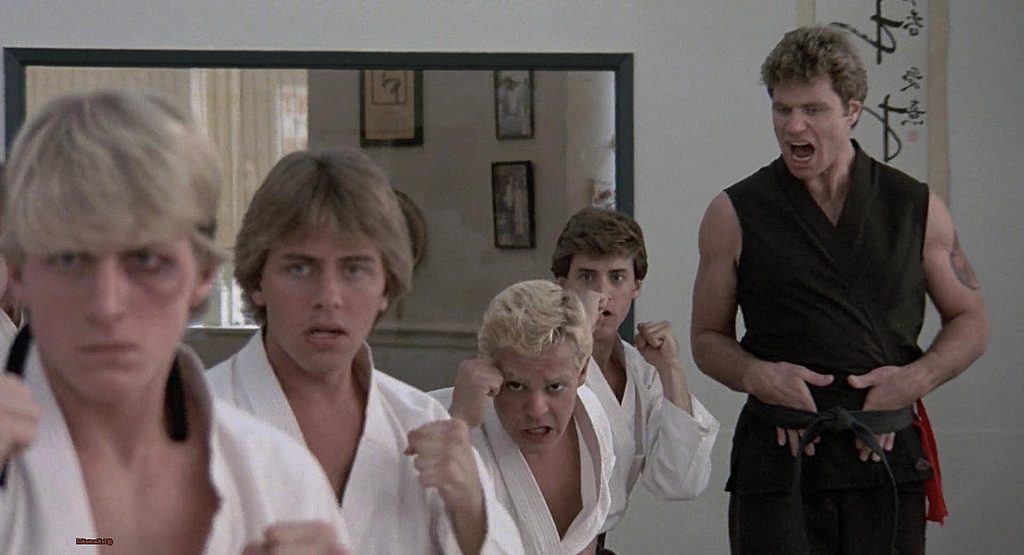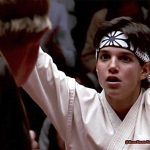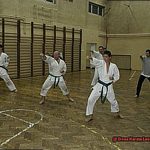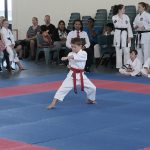Welcome to the world of The Karate Kid – a timeless classic that has captured the hearts and minds of audiences for decades. With its iconic training montages, inspiring message, and lovable characters, this film has become a beloved favorite for both young and old. So, grab your headband and get ready to wax on and wax off as we delve into the world of The Karate Kid.
In this blog post, we will take a deep dive into:
- The origins of The Karate Kid and how it became a cultural phenomenon
- The unforgettable bond between Daniel LaRusso and Mr. Miyagi
- The relatable themes of perseverance, friendship, and self-discovery that make this movie so enduring
- How The Karate Kid has inspired numerous spin-offs, remakes, and even a hit TV series
- Behind-the-scenes trivia and fun facts that will surprise even the most dedicated fans
Whether you’re a die-hard fan or new to the franchise, there’s something for everyone in this post. So put on your white gi and join us as we revisit the timeless tale of The Karate Kid.
Is Karate Kid?
The term “Karate Kid” carries great weight in both popular culture and the world of martial arts. It refers to the iconic 1984 film, The Karate Kid, which has stood the test of time and inspired countless individuals to take up karate. The movie’s central themes of hard work, discipline, and respect perfectly align with the principles of karate, making it a fitting representation of this martial art.
The Karate Kid franchise has also played a significant role in promoting the practice and principles of karate to a younger audience. The films effectively showcase both the physical and mental benefits of engaging in this martial art, along with important life lessons. As a result, many children have been motivated to learn karate as a means of self-defense and personal growth.
In terms of its connection to the martial art itself, the term “Karate Kid” can be seen as a tribute to the origins of karate in Okinawa, Japan. The word “karate” translates to “empty hand”, emphasizing the use of one’s body alone in combat. This concept is mirrored in the film’s main character, Daniel LaRusso, as he learns to defend himself using only his hands and feet.
Additionally, the portrayal of Mr. Miyagi as a wise mentor figure aligns with the traditional role of a sensei (karate instructor) in Japanese culture. Senseis not only teach physical techniques but also serve as mentors who impart important values and life lessons to their students.
The Impact of the Karate Kid Franchise on Popularizing Karate
The Karate Kid franchise played a pivotal role in bringing karate and other martial arts to the forefront of mainstream media. Through its films and accompanying series, the franchise highlighted not only the physical aspects of karate but also delved into its cultural and philosophical elements. This unique blend of action, drama, and cultural exploration captured the attention of a diverse audience, including those who were previously unaware of martial arts.
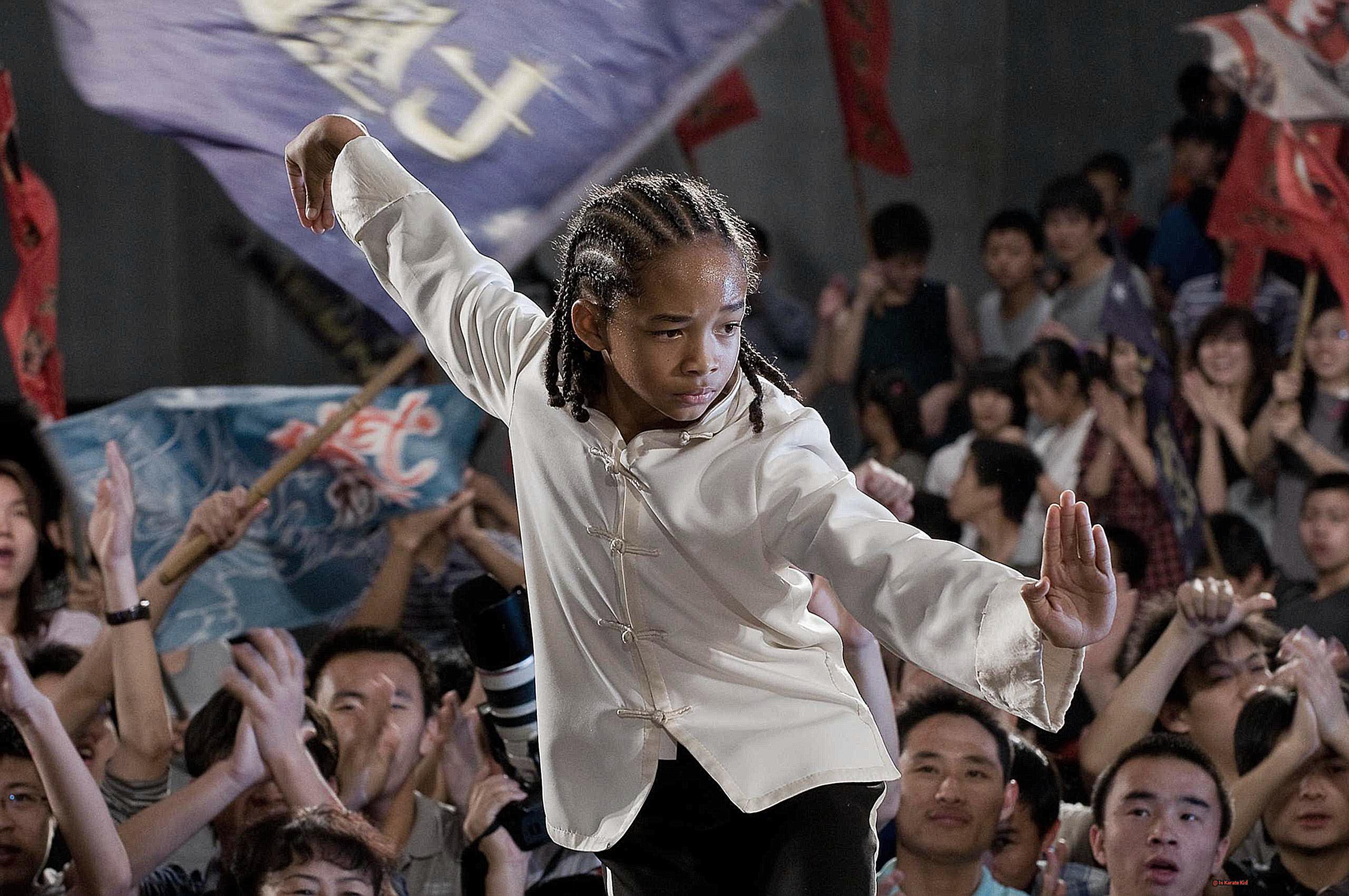
Furthermore, the franchise’s success can be attributed to its relatable characters and captivating storytelling. The original film, released in 1984, introduced us to Daniel LaRusso, a young boy who moves to California and learns karate from his mentor, Mr. Miyagi. The film’s classic underdog story, coupled with its themes of determination and self-discovery, struck a chord with viewers and became a cultural sensation.
The impact of The Karate Kid franchise on popularizing karate can also be seen through its influence on younger generations. Many children who watched the film were inspired to take up martial arts, resulting in a significant increase in enrollment at karate dojos across the nation. Furthermore, the franchise’s enduring popularity has sparked a renewed interest in karate among adults as well.
Another noteworthy contribution of The Karate Kid franchise is its representation of East Asian culture and Asian characters in Hollywood. While martial arts films were on the rise during the 1970s and 1980s, they often featured white actors in lead roles.
The Karate Kid franchise broke this norm by casting Pat Morita, a Japanese American actor, as Mr. Miyagi.
This representation not only challenged stereotypes but also provided Asian Americans with a positive role model.
The Karate Kid franchise has left an indelible mark on popular culture by promoting karate and other martial arts in mainstream media.
With its captivating storytelling and portrayal of East Asian culture and characters, the franchise has captured the hearts of audiences and motivated many to pursue martial arts.
The Key Themes of Discipline, Respect, and Hard Work in Karate
Discipline, respect, and hard work are three essential principles that are deeply ingrained in the art of karate. These themes go beyond physical training and play a crucial role in shaping one’s character and mindset. In fact, they are considered the foundation of karate training.
Discipline is a vital component of karate as it teaches students to follow rules and regulations, both inside and outside the dojo. This includes arriving on time for training, wearing a clean uniform, and showing proper etiquette like bowing before entering the dojo or addressing instructors with respect. These guidelines establish a structured and respectful environment that promotes learning.
Respect is a fundamental aspect of karate, emphasized through the “Dojo Kun” principles. This includes showing respect towards others, whether inside or outside the dojo. Students are taught to respect their instructors, training partners, and opponents. Furthermore, karate also instills self-respect, promoting self-discipline and self-control.
Hard work is ingrained in the practice of karate as it requires consistent effort and dedication to improve. Training can be physically demanding, pushing students beyond their limits. However, it also teaches the value of hard work and perseverance in achieving goals.
To sum up, discipline, respect, and hard work are integral themes that play a significant role in karate practice. They not only contribute to physical training but also shape one’s character and mindset, promoting personal growth and development.
How Practicing Karate Can Benefit Children’s Physical and Mental Well-Being
Karate offers a multitude of physical and mental benefits for children. By regularly practicing this full-body workout, kids can develop exceptional physical abilities that can greatly benefit them in other sports and activities. The techniques and movements involved in karate require the use of various muscle groups, leading to improved strength, coordination, and body control.
The mental benefits of karate are equally significant. Discipline, respect, and self-control are promoted through the structured training environment. Children learn to follow rules, listen to their instructors, and respect their peers, cultivating a sense of discipline that can be applied to other areas of their lives.
Additionally, karate can have a positive impact on a child’s self-confidence and self-esteem. As they progress in their training and achieve new belts or goals, they gain a sense of accomplishment and pride in their abilities. This boosts their confidence and helps them believe in themselves.
One of the most notable benefits of karate is its effect on focus and concentration. The fast-paced movements and sequences require students to be fully present and focused on their techniques, blocking out any distractions. This promotes better concentration, which can also benefit children in other aspects of their lives.
Moreover, karate teaches children the importance of setting realistic goals and working hard to achieve them. Through consistent practice and dedication, they learn that hard work pays off, instilling a strong work ethic in them.
Lastly, karate promotes a healthy and active lifestyle for children. In today’s technology-driven world, where kids spend more time in front of screens than being physically active, karate provides a much-needed outlet for exercise. This can help prevent childhood obesity and other health issues.
Karate for All Ages: Why Adults Can Also Benefit from Practicing This Martial Art
Karate is not just for kids – adults can also reap numerous benefits from this martial art. Both physically and mentally, practicing karate can lead to improved health and well-being. From increased self-confidence to enhanced coordination, karate offers a wide range of advantages for adult practitioners.
Improved Mental Health
In addition to the physical aspects, karate also requires a great deal of mental focus and concentration. This can help adults clear their minds and alleviate stress. Moreover, the practice of karate incorporates meditation techniques that can improve mental well-being and reduce anxiety and depression, according to Psychology Today.
Increased Self-Confidence
As adults learn new skills and techniques in karate, they gain a sense of achievement which can boost self-confidence and self-esteem. This positive impact can extend to other areas of life, as stated by Science Direct.
Improved Physical Health
Karate is a full-body workout that greatly improves cardiovascular health, muscle strength, and overall physical fitness. It also helps maintain a healthy weight, improve flexibility, and increase energy levels, according to Healthline.
Increased Flexibility
The various kicks and stretches in karate significantly improve flexibility in the legs, hips, and core muscles. This not only enhances technique but also reduces the risk of injury in daily activities, as advised by Mayo Clinic.
Improved Balance
The stances and movements in karate require strong balance and control. Through consistent practice, adults can enhance their balance, leading to benefits in daily life and reducing the risk of falls and injuries, according to NCBI.
Improved Coordination
Karate involves a combination of punches, kicks, and footwork that require coordination between the upper and lower body.
The Importance of Proper Training and Equipment in Karate Practice
Proper training and equipment are vital aspects of a person’s karate practice, greatly impacting their overall performance. With the right tools and resources, individuals can develop their physical fitness, technique, and mental strength. Additionally, a skilled instructor can instill discipline, focus, and mental fortitude in their students, further enhancing their performance.
Moreover, the proper equipment not only ensures safety but also helps improve technique and simulate real-life situations. This allows practitioners to train longer and more comfortably without the fear of getting injured. By providing a safe and realistic training environment, proper equipment helps individuals push themselves to their limits and improve their skills.
In fact, proper training and equipment go hand in hand in achieving success in karate practice. Without proper training, even the best equipment cannot guarantee improved performance. Similarly, without the right equipment, all the training and effort put in may not yield desired results.
Furthermore, a good instructor plays a crucial role in a person’s karate journey. They provide guidance, motivation, and support to their students, helping them reach their full potential. Along with technical knowledge, a good instructor also instills important values like discipline, focus, and mental strength in their students, which are essential for success in not just karate but also life.
Proper training and equipment are essential for a successful karate practice. With the right tools and guidance from a skilled instructor, individuals can improve their physical fitness, technique, and mental strength.
Debunking Common Myths and Misconceptions About Karate
There are many myths and misconceptions surrounding the practice of karate that must be debunked. One of the most common is the belief that it is a violent and aggressive sport. This is far from the truth. In fact, karate is a discipline that emphasizes self-defense and self-control. It teaches individuals to use their physical strength wisely and only when necessary.
Another common misconception is that karate is only for men. This couldn’t be further from reality. Karate is a sport that welcomes people from all walks of life, regardless of gender. In recent years, there has been a significant increase in the number of women taking up karate.
Some also believe that one must be extremely physically fit and flexible to practice karate. While it is true that karate requires a certain level of physical fitness, it is not exclusive to those who are already in top shape. With proper training and dedication, anyone can learn and excel in karate.
It is also a misconception that karate is only for children. While many children do enjoy and benefit from practicing karate, it is by no means limited to them. In fact, adults of all ages can participate in karate and reap its numerous benefits.
Lastly, some believe that karate solely relies on physical strength. However, this could not be further from the truth. Karate focuses on the balance of both physical and mental strength. Mental discipline and focus are just as crucial as physical strength in this discipline.
Conclusion
In conclusion, The Karate Kid is not just a beloved movie, but a timeless classic that has captured the hearts and minds of audiences for decades. Its iconic training montages, inspiring message, and lovable characters have made it a cultural phenomenon that continues to inspire and entertain people of all ages. From its origins as a representation of the martial art of karate to its impact on popularizing it in mainstream media, The Karate Kid has left an indelible mark on our society.
But beyond its entertainment value, this film also holds important lessons about discipline, respect, and hard work that are relevant in our daily lives. Whether you’re a child or an adult, practicing karate can bring numerous physical and mental benefits. However, success in this discipline also requires proper training and equipment – something that is often overlooked.
So let’s grab our headbands and join us as we delve deeper into The Karate Kid – a true testament to perseverance, friendship, and self-discovery. Let’s explore the unique blend of action, heartwarming moments, and valuable life lessons that make this movie stand out from other coming-of-age stories.

